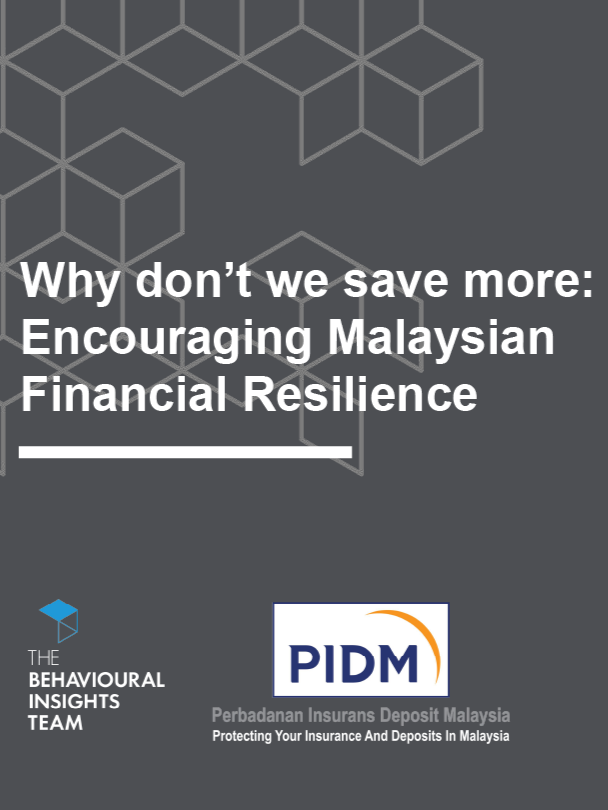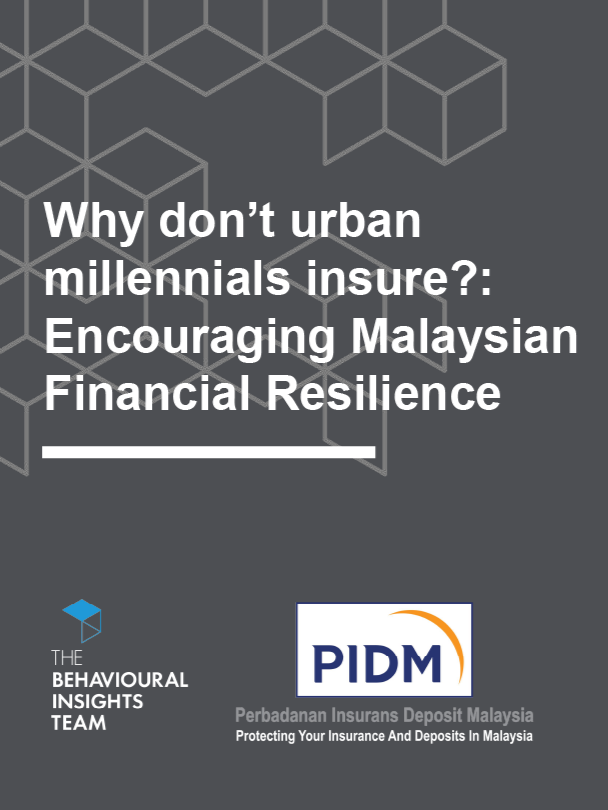PIDM Behavioural Insights Reports
Financial Literacy Core Competencies for Malaysian Adults (FLCC)
The Financial Literacy Core Competencies for Malaysian Adults (FLCC) document was formulated by the Financial Education Network (FEN) and comprises a wide range of financial literacy outcomes for improved financial management in the everyday life of Malaysian adults. The FLCC document aims to:
- Provide high level guidance on breadth of financial literacy competencies in designing financial education initiatives,
- Emphasise on financial literacy outcomes according to knowledge, behaviour and attitudes, and
- Provide options on competencies relevant in different ways across various target groups.
The FLCC document contains beneficial insights on the desirable traits of Malaysian adults aged 18 and above, including longer-term habits and practices for consistent and effective money management. It is useful as a reference to develop well-designed and targeted financial education programmes for Malaysian adults in all life stages. Relevant financial literacy competencies can assist in efforts to refine the design of existing programmes and to identify gaps in financial education initiatives. In addition, the relevant competencies facilitate the development of monitoring tools to measure progress and success of the initiatives implemented.
Muat turun laporan penuh
Behavioural Studies (Savings)
Globally, emergency savings is increasingly recognised as an important pillar to build the financial resilience of people against unexpected life shocks and financial stress. However, people face many practical challenges, including behavioural barriers to savings. PIDM and The Behavioural Insights Team (BIT) collaborated to identify behavioural insights around savings behaviours that could help Malaysians better withstand financial shocks in the future. Our findings are presented in the form of a literature review on behavioural science research on savings, as well as a report outlining results and key recommendations from a survey and behavioural economics experiment.
- What affects the way we think and save? Common behavioural biases
- Who did we speak to? Respondent demographic profile
- How do Malaysians behave? Results from our survey and experiment
- What next? Key recommendations
Muat turun laporan penuh
Behavioural Studies (Insurance)
Insurance is important for protection against life’s unexpected events, and an important component of financial resilience. While many acknowledge this, various factors including behavioural barriers may influence whether such an insurance is taken up or not. PIDM and The Behavioural Insights Team (BIT) collaborated to gain insights around the behaviours of urban millennials in Malaysia in respect of long-term insurance (life and health), and explores possible interventions to encourage its uptake. Our findings are presented in the form of a literature review on behavioural science research on insurance, as well as a report outlining results from a survey, framed field experiment and key recommendations.
- What affects the way we think and insure? Common behavioural biases
- Who did we speak to? Respondent demographic profile
- How do urban Malaysian millennials behave? Results from our survey and experiment
- What next? Key recommendations



